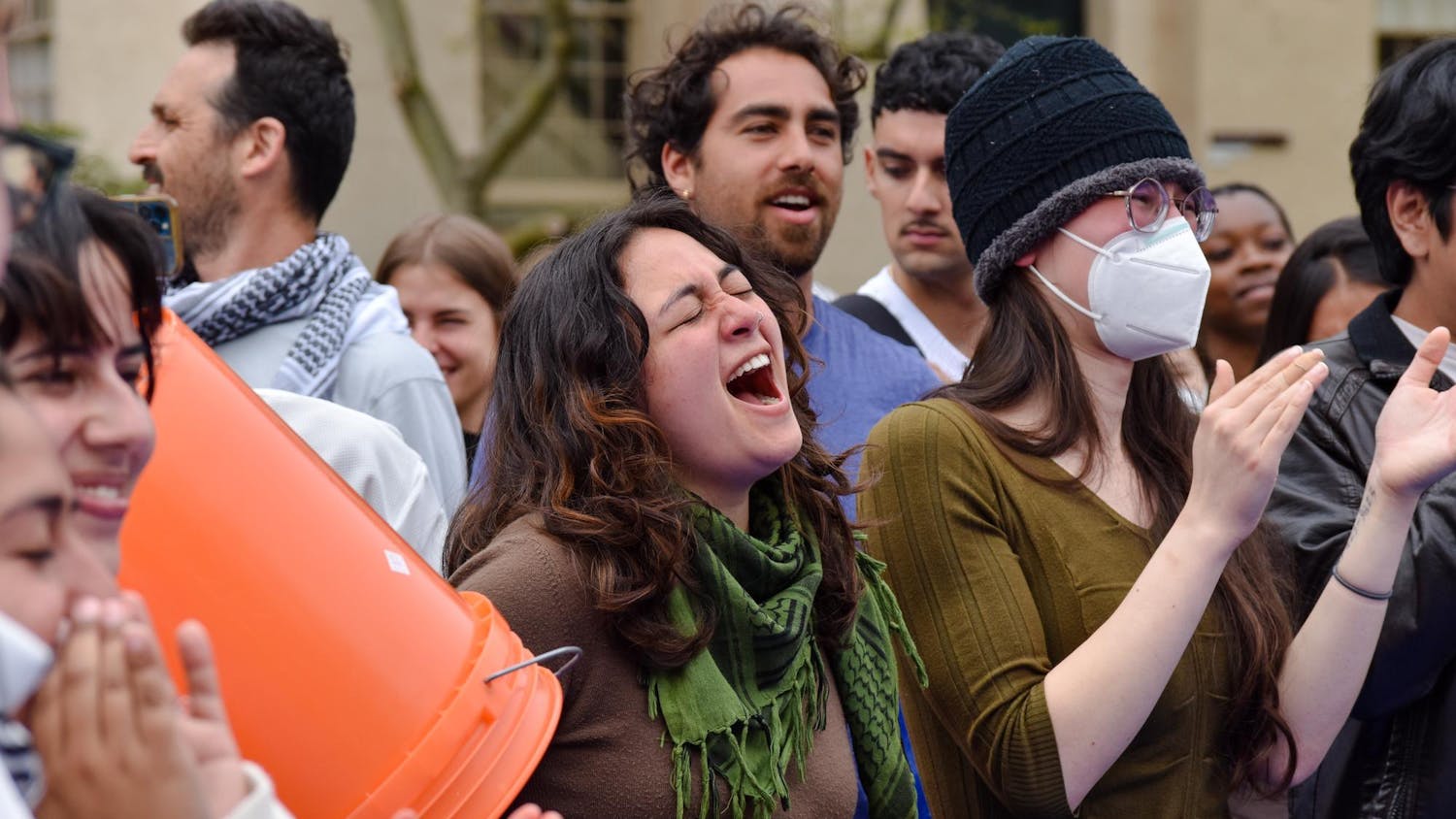In honor of Constitution Day, the Janus Forum hosted a discussion Friday on the constitutionality of the Patient Protection and Affordable Care Act, bringing to campus what some now refer to as the "broccoli debate." The lecture pitted Randy Barnett, professor of legal theory at Georgetown University, against his former tort law professor, Charles Fried, professor of law at Harvard.
The act requires all people not covered by a health insurance program to purchase coverage or pay a fine. Since its implementation, the act's constitutionality has been challenged in many states.
In a February hearing before the Senate Judiciary Committee, Fried defended the constitutionality of the mandate — when asked if the act was not legally akin to Congress forcing people to eat vegetables, Fried said "Congress cannot compel you to eat your broccoli" but "they can make you pay for it, and that's a big, big difference," he explained in the lecture.
Barnett began the debate on Friday, speaking to the crowd of students and professors in Salomon 101 about the difference between federally mandated action and inaction, which is what most federal laws regulate.
"What if I told you 100 things you had to do tomorrow?" he said. "That would be a much, much bigger infringement on your liberty than 100 prohibitions."
"It's not as though the federal government never requires you to do anything," Barnett said, pointing to federal taxes and the draft as examples. He added, "Each of these duties is necessary for the operation of government itself."
According to Barnett, the government's claims that health care is somehow "unique" and therefore legal to regulate are not based in the Constitution. Allowing Congress this mandate would give it "unlimited power, which is equivalent to a police power."
"The mandate's defenders are claiming, because Congress has the right to draft you into the military and make you fight and die for your country, it has the right to do anything less than that," Barnett said.
Barnett concluded his argument by predicting that the Supreme Court will ultimately vote down the mandate, though he said he believes the vote will be close.
Fried began his argument predicting the opposite outcome.
"I think there's a good chance that the Supreme Court will uphold the mandate by a vote of eight to one," he said. "The one vote is Justice Clarence Thomas and that is because Justice Clarence Thomas has been for a decade urging a definition of commerce which is a very narrow one. He'll be perfectly principled and perfectly consistent and perfectly incorrect."
"Ever since the New Deal, it has been quite clear that if an activity or a system has a substantial effect on the national economy, the government has the power to regulate it," Fried said.
He reasserted his broccoli argument, raising objections to the suggestion that the mandate forces people to enter a market.
"The real market is not the market for health insurance — it's the market for health care," Fried said. "It is simply false to say that any substantial number of persons have not at some point in their lives, and will not at other points in their lives, enter the healthcare market."
"Unless you were born at home without the help of a midwife" and your mother severed the umbilical cord with her teeth, you are a part of the market, he said.
He concluded his argument by repeating the prediction with which he began: "eight to one."
— With additional reporting by Felice Feit




